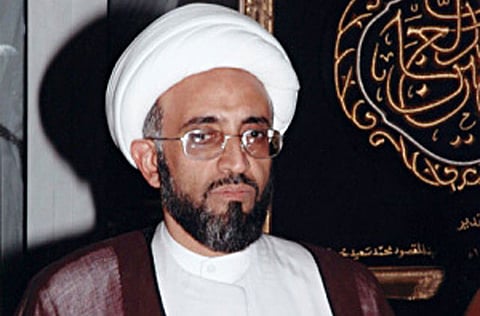Shiite Saudi clerics warn against violence
Clerics’ statement follows several rounds of talks to defuse tension

Riyadh: Shiite Saudi clerics warned on Sunday against taking up arms against the authorities in the kingdom, in the wake of sporadic violence that has rocked the country’s Shiite-dominated east.
Demonstrations in Eastern Province, where most of the kingdom’s approximately two million Shiites live, erupted simultaneously with a protest movement in neighbouring Bahrain in 2011.
They took a violent turn in 2012 and clashes between police and protesters have so far killed 24 people, including at least four policemen, according to activists.
The 10 influential clerics from Eastern Province said in the statement that “using violence and arms against the state is rejected and condemned”.
They also warned Shiites in the kingdom from “being lured into violence and extremism ... which complicates matters and serves enemies.”
The clerics insisted that religion demands achieving “security and stability in the country” and that “political violence destroys the nation”.
Clerics who signed the statement included Hassan Al Saffar who is known for his role as mediator between Shiite protesters and authorities in the past.
The statement follows several meetings between Khalid Al Safyan, governor of Qatif in Eastern Province, and a number of Shiite dignitaries to try and ease tensions that have been brewing in the oil-rich east, activists said.
It also comes after Saudi Arabia published on Friday a list designating “terror” groups, including the little-known Saudi Hezbollah Shiite militant group and Al Houthi rebels in neighbouring Yemen.
In February unknown gunmen opened fire at a police station in the flashpoint village of Awamiya, in Qatif, wounding three policemen, a week after a firefight there killed two policemen and two wanted Shiite activists.
In January, the US embassy in Riyadh warned its citizens against travelling to Awamiya after gunmen opened fire at the car of two German diplomats, who escaped unhurt.
Of more than 950 people arrested in the wake of the 2011 Arab Spring for involvement in the unrest in the province, 217 are still being held.


